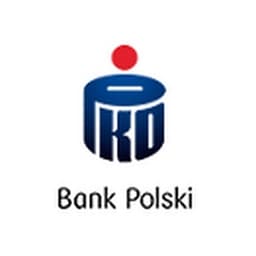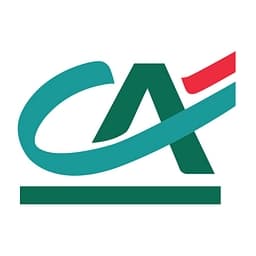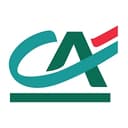Savings Accounts in Poland
Looking for the best savings accounts in Poland with high interest rates? Our comprehensive guide compares term deposits, high-yield savings accounts, and investment options from top Polish banks. Whether you're an expat, local resident, or investor, find the perfect savings solution to grow your money safely with competitive rates and flexible terms.
Table of Contents

mBank
Tech-savvy savers and digital banking

mBank
Tech-savvy savers and digital banking
Key Features
Account Details
Summary

PKO Bank Polski
Conservative savers and beginners

PKO Bank Polski
Conservative savers and beginners
Key Features
Account Details
Summary

Millennium Bank
Wealth building and premium services

Millennium Bank
Wealth building and premium services
Key Features
Account Details
Summary

Alior Bank
Polish speakers seeking promotions

Alior Bank
Polish speakers seeking promotions
Key Features
Account Details
Summary

Bank Pekao
Traditional savers and stability seekers

Bank Pekao
Traditional savers and stability seekers
Key Features
Account Details
Summary

ING Bank Śląski
High-yield savings seekers

ING Bank Śląski
High-yield savings seekers
Key Features
Account Details
Summary

Santander Bank Polska
International savers and high-net-worth individuals

Santander Bank Polska
International savers and high-net-worth individuals
Key Features
Account Details
Summary

Credit Agricole Bank
Regional savers and agricultural sector

Credit Agricole Bank
Regional savers and agricultural sector
Key Features
Account Details
Summary
Important Information About Polish Savings
All deposits in Polish banks are protected by the Bank Guarantee Fund (BFG) up to 100,000 EUR per person per bank. Interest rates shown are indicative and can change. Always check current rates before opening an account. Interest earned on savings accounts is subject to 19% tax in Poland, which banks automatically deduct.
Why You Can Trust Our Savings Guide
We are independent from the financial institutions that we review and compare.
We are transparent about our research methods and evaluation criteria for savings products.
Our content is carefully fact-checked to ensure accurate and up-to-date interest rates and terms.
We have extensive experience with Polish savings products and understand what savers need.
Choosing the Right Savings Account in Poland
When selecting a savings account in Poland, it's crucial to consider factors such as interest rates, minimum deposits, withdrawal flexibility, and safety guarantees. The Polish savings market offers competitive rates, especially for term deposits, with some banks offering promotional rates above 7% APY for limited periods.
Having a Polish savings account is essential for building wealth and protecting against inflation. Local accounts offer higher interest rates than many international options, and all deposits are protected by the EU-standard Bank Guarantee Fund up to 100,000 EUR per person per bank.

Maximize your savings with competitive Polish interest rates.
Photo: Polish Zloty Currency
Understanding Interest Rates and Terms
Polish savings accounts offer some of the highest interest rates in Europe, with term deposits (lokaty terminowe) currently offering 4-7% APY depending on the bank and deposit term. ING Bank Śląski andmBank typically offer the most competitive rates for both regular savings and term deposits.
Interest rates are influenced by the National Bank of Poland's reference rate and can change frequently. Term deposits lock in rates for the full period (3 months to 5 years), while regular savings accounts may have variable rates that can be adjusted by the bank with notice.
Deposit Safety and Guarantees
All deposits in Polish banks are protected by the Bank Guarantee Fund (Bankowy Fundusz Gwarancyjny - BFG) up to 100,000 EUR per depositor per bank. This is the same protection level as other EU countries and applies to both Polish residents and foreigners with accounts in Poland.
Major banks like PKO Bank Polski, mBank, and ING are additionally supervised by European banking authorities and undergo regular stress tests. For maximum protection, consider spreading large deposits across multiple banks to stay within the 100,000 EUR guarantee limit per institution.
Tax on Savings Interest
Interest earned on savings accounts in Poland is subject to 19% capital gains tax (podatek Belki). Banks automatically deduct this tax before crediting interest to your account, so you receive the net amount. There's no additional tax reporting required for standard savings accounts.
For non-residents, tax treatment may vary depending on tax treaties between Poland and your country of residence. Consult with a tax advisor if you have questions about your specific situation, especially for large deposits or if you're planning to move between countries.
High-Yield Savings Options for Maximum Returns
Polish banks offer some of the highest savings rates in Europe. Here are the top options for maximizing your returns while keeping your money safe and accessible.

ING Bank Śląski
Currently offering up to 7% APY on term deposits, ING provides the highest rates in Poland. Their Konto Oszczędnościowe offers competitive rates with no early withdrawal penalties.

mBank
mBank's eLokata offers up to 6.5% APY with full mobile management. Their automated savings features help you save consistently with competitive rates.

PKO Bank Polski
Poland's largest bank offers up to 6% APY with the lowest minimum deposits (100 PLN). Perfect for conservative savers who prioritize security and accessibility.
Term Deposits vs Regular Savings Accounts
Understanding the difference between term deposits (lokaty terminowe) and regular savings accounts is crucial for maximizing your returns. Term deposits offer higher interest rates but require you to lock in your money for a specific period, while regular savings provide flexibility with lower rates.
The choice depends on your financial goals, how long you can commit your money, and whether you need immediate access to funds. Let's compare both options to help you decide.

Choose the right savings strategy for your financial goals.
Photo: cottonbro studio - pexels.com
Term Deposits (Lokaty Terminowe)
Advantages:
- • Higher interest rates (4-7% APY)
- • Guaranteed returns for full term
- • Protection against rate decreases
- • Various term options (3 months - 5 years)
Considerations:
- • Money locked for fixed period
- • Early withdrawal penalties
- • Higher minimum deposits
- • Miss out if rates increase
Best for: Money you won't need for 6+ months, maximizing returns
Regular Savings Accounts
Advantages:
- • Immediate access to funds
- • No early withdrawal penalties
- • Lower minimum deposits
- • Can benefit from rate increases
Considerations:
- • Lower interest rates (1-3% APY)
- • Rates can decrease anytime
- • Temptation to spend savings
- • Variable returns
Best for: Emergency funds, short-term goals, flexible access needs
Hybrid Strategy
Many savers use a combination: keep 3-6 months of expenses in a regular savings account for emergencies, and put longer-term savings in term deposits for higher returns. This balance provides both security and growth.
Understanding Interest Rates in Poland (2025)
Polish interest rates have seen significant changes in 2025, with the National Bank of Poland (NBP) maintaining rates that allow competitive savings returns. Understanding how rates work helps you maximize your savings potential.
Current market rates range from 1-7% APY depending on the account type, deposit amount, and promotional offers. Banks adjust rates based on NBP policy, competition, and their funding needs.
Current Rate Environment (2025)
Types of Interest Rates
Fixed Rates
Guaranteed rate for the entire deposit term. Common with term deposits and promotional savings accounts.
Cons: Miss out if rates increase
Variable Rates
Rate can change based on market conditions and bank policy. Most regular savings accounts use variable rates.
Cons: Rate can decrease anytime
Rate Shopping Tips
- • Promotional rates expire: Many high rates are temporary (3-6 months)
- • Check minimum deposits: Best rates often require 10,000+ PLN
- • Read the fine print: Some rates apply only to new money or first-time customers
- • Consider total returns: Factor in fees, taxes, and inflation
- • Monitor rate changes: Banks can cut variable rates with short notice
Deposit Safety and Guarantees in Poland
Polish bank deposits are protected by the Deposit Guarantee Fund (Bankowy Fundusz Gwarancyjny - BFG), providing comprehensive protection for savers. This EU-harmonized system ensures your money is safe even if a bank fails.
Poland's banking system is considered stable and well-regulated, with major banks being subsidiaries of large European financial institutions or state-controlled entities.
Protection Coverage
What's Covered
Protected Deposits
- • Regular savings accounts
- • Term deposits (lokaty)
- • Current account balances
- • Foreign currency deposits
- • Joint account deposits
- • Business account deposits
Not Protected
- • Investment funds
- • Stocks and bonds
- • Insurance policies
- • Safe deposit box contents
- • Cryptocurrency
- • Deposits over €100,000
Maximizing Protection
Spread Your Deposits:
- • Use multiple banks for large amounts
- • Each bank = separate €100,000 limit
- • Check bank ownership (same group = same limit)
Account Structuring:
- • Individual accounts get separate protection
- • Joint accounts share the limit
- • Business accounts separate from personal
Tax on Savings Interest in Poland
Interest earned on Polish savings accounts is subject to capital gains tax (podatek od zysków kapitałowych). Understanding tax implications helps you calculate real returns and plan your savings strategy effectively.
The tax rate and reporting requirements vary depending on your residency status, the amount earned, and the type of savings account you hold.
Tax Rates (2025)
How Tax is Applied
Automatic Withholding
Polish banks automatically deduct 19% tax on interest above 200 PLN annually. You receive net interest in your account.
Tax-free: 200 PLN
Taxable: 800 PLN
Tax owed: 152 PLN (19% of 800)
Net received: 848 PLN
Tax Declaration
If you earn more than 200 PLN in interest, you must report it in your annual tax declaration (PIT-36 or PIT-37).
• Bank statements showing interest
• Tax certificates from banks
• Currency conversion records
Tax Optimization Tips
Maximize Tax-Free Amount:
- • Use multiple banks (200 PLN per bank)
- • Spread across family members
- • Consider timing of withdrawals
Record Keeping:
- • Save all bank statements
- • Track foreign currency conversions
- • Keep tax certificates from banks
For Non-Residents
Non-resident tax treatment may differ based on tax treaties between Poland and your home country. Some countries have reduced withholding rates or tax credit agreements.
Recommendation: Consult with a tax advisor familiar with international tax law if you're earning significant interest as a non-resident.
Essential Polish Savings Terms
Understanding key Polish banking terms will help you navigate savings products and communicate with bank staff. Here are the most important terms you'll encounter.
Language tip: Most modern Polish banks offer English interfaces in their mobile apps. mBank's app and ING's platform are completely available in English, making savings management easy for expats.
Frequently Asked Questions About Polish Savings Accounts
What are the highest savings rates currently available in Poland?▼
Currently, ING Bank Śląski offers the highest rates up to 7% APY, followed by mBank at 6.5% APY. These rates are often promotional and may vary based on deposit amount and term length. Always check current rates as they change frequently based on National Bank of Poland policy rates.
Are my savings safe in Polish banks?▼
Yes, all deposits in Polish banks are protected by the Bank Guarantee Fund (BFG) up to 100,000 EUR per person per bank. This is the same protection level as other EU countries. Major banks like PKO, ING, and mBank are additionally supervised by European banking authorities, providing extra security layers.
How much tax do I pay on savings interest in Poland?▼
Interest earned on savings accounts in Poland is subject to 19% capital gains tax (podatek Belki). Banks automatically deduct this tax before paying interest to your account, so you receive the net amount. There's no additional reporting required for standard savings accounts.
What's the difference between regular savings and term deposits?▼
Regular savings accounts offer flexibility with lower rates (1-3% APY), while term deposits (lokaty terminowe) offer higher rates (4-7% APY) but lock your money for a fixed period (3 months to 5 years). Term deposits typically have penalties for early withdrawal, while savings accounts allow immediate access to funds.
Can foreigners open savings accounts in Polish banks?▼
Yes, foreigners can open savings accounts in Poland with the same requirements as regular bank accounts. You'll need a passport, proof of Polish address, and often a PESEL number. EU citizens have easier access, while non-EU citizens may need residence permits. mBank and ING offer fully English services for international customers.
What's the minimum amount needed to start saving?▼
Minimum deposits vary by bank and account type. PKO Bank Polski requires as little as 100 PLN, while premium accounts at Millennium Bank require 2,000 PLN or more. Generally, higher minimum deposits unlock better interest rates. Most banks offer entry-level savings starting from 500-1,000 PLN.
How often do interest rates change in Poland?▼
Interest rates in Poland can change monthly or even weekly, especially for promotional offers. They're influenced by the National Bank of Poland's reference rate, competition between banks, and market conditions. Term deposits lock in rates for the full term, while regular savings rates can fluctuate. Always check current rates before depositing.
Should I choose PLN or foreign currency savings?▼
PLN savings typically offer higher interest rates (4-7% APY) compared to EUR or USD accounts (0.1-2% APY). However, foreign currency accounts protect against PLN devaluation. For expats planning to stay in Poland long-term, PLN accounts are usually more profitable. For those planning to leave, foreign currency might be safer.
Ready to Open a Bank Account in Poland?
Before you start saving, you'll need a Polish bank account. Check our comprehensive guide to the best banks in Poland for foreigners, with step-by-step account opening instructions.
Important Disclaimer
Interest Rate Accuracy: Interest rates are subject to frequent changes and may vary based on deposit amounts, promotional periods, and individual circumstances. While we update our data monthly (last updated January 2025), always verify current rates directly with banks before making deposits.
Tax Information: Tax treatment of savings interest may vary based on your residency status, total income, and applicable tax treaties. This guide provides general information only. Consult with a qualified tax advisor for personalized advice.
Investment Risk: While bank deposits are protected by government guarantee schemes, inflation and currency fluctuation risks remain. Consider diversifying your savings strategy based on your financial goals and risk tolerance.
Affiliate Disclosure: This page contains affiliate links to banking partners. We may receive compensation when you open accounts through these links, but our rankings are based on objective criteria including interest rates, fees, and user experience.
Data Sources: Our recommendations combine official bank rate schedules, customer reviews, regulatory filings, and direct testing. We update information quarterly and when significant rate changes occur.